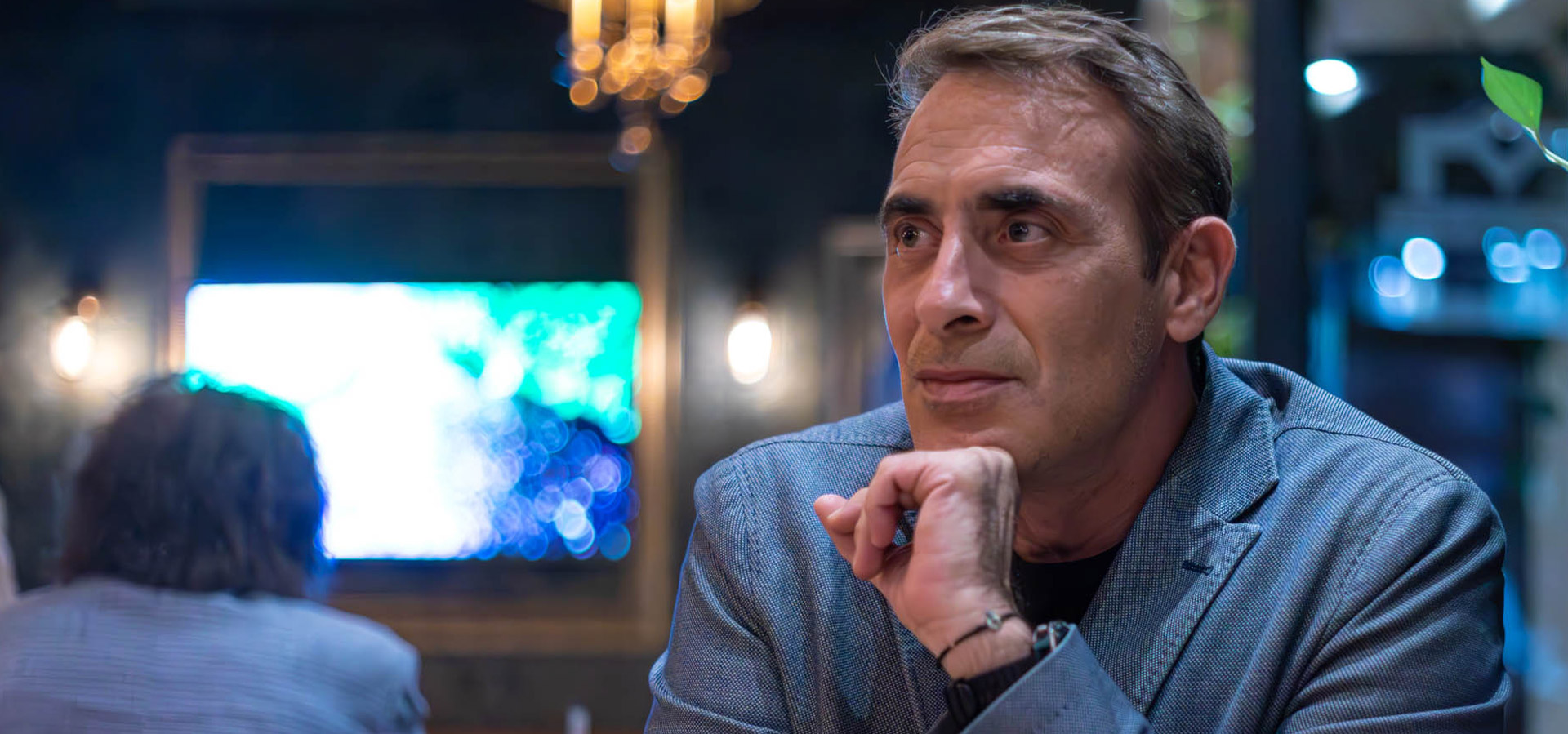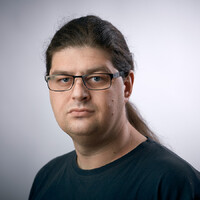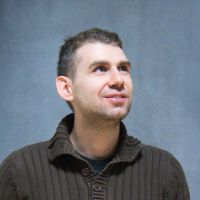Slavko Beleslin: A Dorcol man at heart from Kosanicev venac
Over the past decade, with his velvety voice and impeccable diction, he led informative programs during prime time, keeping us informed about current events. Although he is now far behind the cameras, serving as the director of the news program at UNA Television, he still ensures that we receive fresh and verified news through the small screens. In an interview for 011info, Slavko Beleslin reminisces about his mischievous adventures growing up on Kosančićev venac, moving to the "hated" Dorćol, and reveals how he found himself in front of the cameras and why news, in fact, is the truth.
What are your first memories of Belgrade?
I was born in Pop Lukina Street, on the corner of Pop Lukina and Brankova Street. I remember running around Kosančićev venac, the noise from Branko's Bridge, tennis matches at Princess Ljubica's Residence, sledding down King Peter Street and past the Cvijeta Zuzorić Pavilion, and building igloos in the courtyard of the Saborna Church...
However, the main playground for my friends and me was the old collapsed library. Only the bravest dared to enter during games of hide and seek. On the other hand, when the adventurous spirit struck us, we would venture to Savamala and explore its tunnels meticulously.
Many years later, I became aware that the backdrop of my childhood was, in fact, the greatest tourist attraction in Belgrade. I am grateful to have been born there and to have experienced my childhood in the heart of the history of a nation.
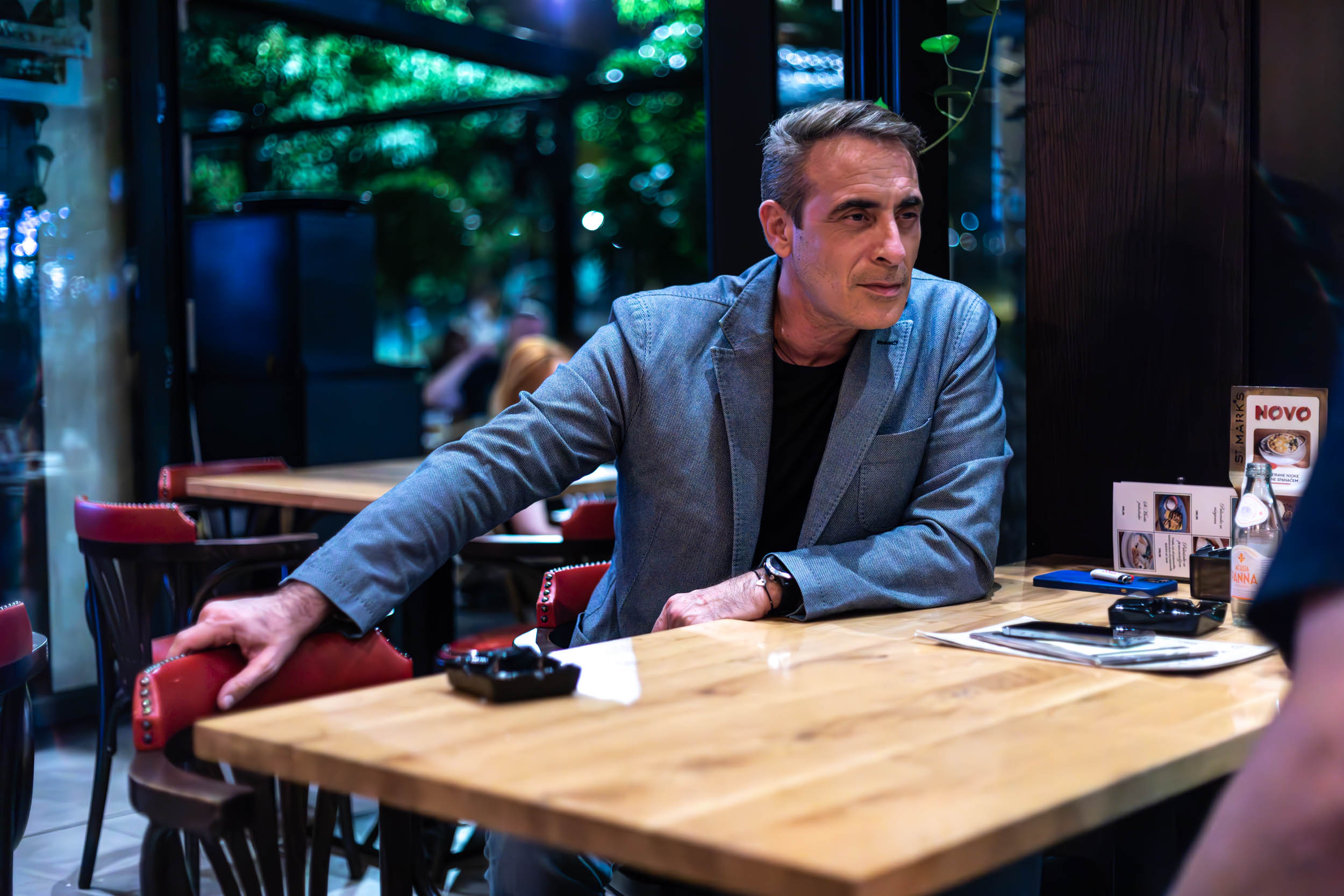
How much did this historical factor play a role in your upbringing?
Honestly, what still brings a smile to my face and makes the patina of nostalgia more convincing than landmarks like the Patriarchate Palace, the French Embassy, or Knez Mihailova Street is the atmosphere in which I grew up.
It was an atmosphere where everyone cared for me, where I was pampered and looked after. Some might call it Tito's Yugoslavia, but it truly was like that— the entire society took care of the youngest inhabitants of this beautiful city. If we think about it a bit more, it's a step back in civilization compared to what we live in today, in this age of individualism.
Back then, everyone contributed to your upbringing. If I crumpled a piece of paper and threw it on the sidewalk, a passerby would warn me to pick it up and put it in the trash. If someone yelled loudly in the afternoon, a neighbor would remind them that there was a household rule to be respected from 3 to 5 pm.
That feeling of complete coziness and safety was not a product of my imagination. That's just how life was. Of course, if something bad happened, the police were there to handle it, and they were considered "good guys" among children, there to help. So, I still think it's not about famous landmarks but about nostalgia.
How often do you visit your old neighborhood?
Unfortunately, it rarely happens, and I feel a bit guilty about it. It's like when you remember a distant relative—time flies, and you haven't called or shown up in a year or two or three. The same story goes for the old neighborhood.
Although I am currently located in Dorćol, I undoubtedly want to return to my old neighborhood. Those are the paths of my childhood. I think Zvonko Bogdan put it best when he said that we all have a tendency to return to where we were born.
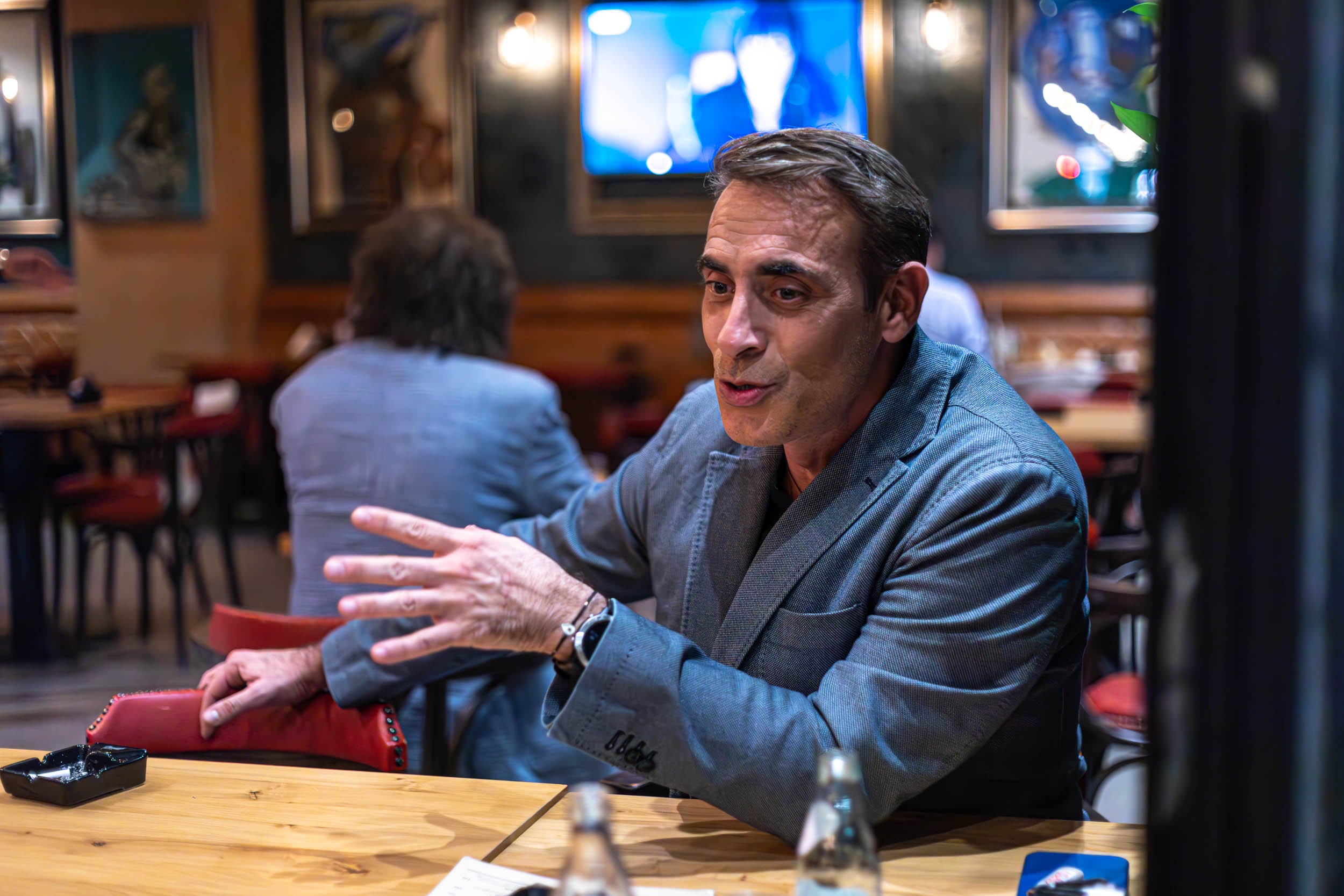
What is it like being a Dorćol resident?
Regarding that, everything I say is entirely subjective. So, during my school days, there was a rivalry between schools. My elementary school, "Braće Ribar," now "Kralj Petar I," where I didn't exactly shine, was always in some kind of "conflict" with "Pero Popović Aga" Elementary School, now "Mihailo Petrović Alas." The dividing point was Studentski Trg and University Park. We, the so-called guys from Palas, were not allowed to go down, and they, the Dorćol residents, were not allowed to go up. So, I somewhat considered the people of Dorćol as archenemies, and to put it mildly, that part of the city was not my favorite.
However, when the time came to leave the family nest and become independent, the only condition for an apartment was that it be located five minutes from Trg Republike because that's something I had simply gotten used to. In the end, I settled in Dorćol, and, if I may add, quite reluctantly. (laughs) Since I was already a TV personality, cashiers would sometimes not very subtly say, "Here's another presenter who wants to be a Dorćol resident!" It might sound theatrical, but for me, it was a first-class insult at the time!
In any case, that's how I became a Dorćol resident and gradually fell in love with that area.
Has Dorćol changed since then?
Absolutely. There is a street called Gundulićev venac that stretches behind Bajloni Market. It's a wonderful place to live, especially in the last decade. However, when I moved here, it was incredibly lively to witness the coexistence of two worlds: one resembling that from "The Wagon Master" and the other, aristocratic. It's an understatement to say that the lines in the supermarket were sometimes very colorful.
Today, the situation is quite different, where Dorćol is changing every day. Almost every other day, I see how an old house is replaced by a new construction site, but I assume that's part of the law of evolution and civilization. And, don't get me wrong, I am absolutely for change, regardless of what I think about current events. Because if we hadn't let go of what our ancestors built, we would all still be living in caves, which, you'll agree, is not particularly practical.
Why didn't you excel in school?
Because I was born a poet while educators tried to mold me. It's more than clear to me today, but back then, I thought something was wrong with me. In reality, I was a very decent child but with different priorities than those imposed by teachers. I aimed to create something that didn't exist yesterday.
I was absorbed in poetry, and it interested me more than mathematical and chemical formulas. My success in school was actually quite decent, but I can attribute that to awards from city and republic poetry competitions for which teachers "looked the other way." Moreover, Illustrated Politics wrote about these exploits. So, in a way, you could say that it was my foray into a form of media.
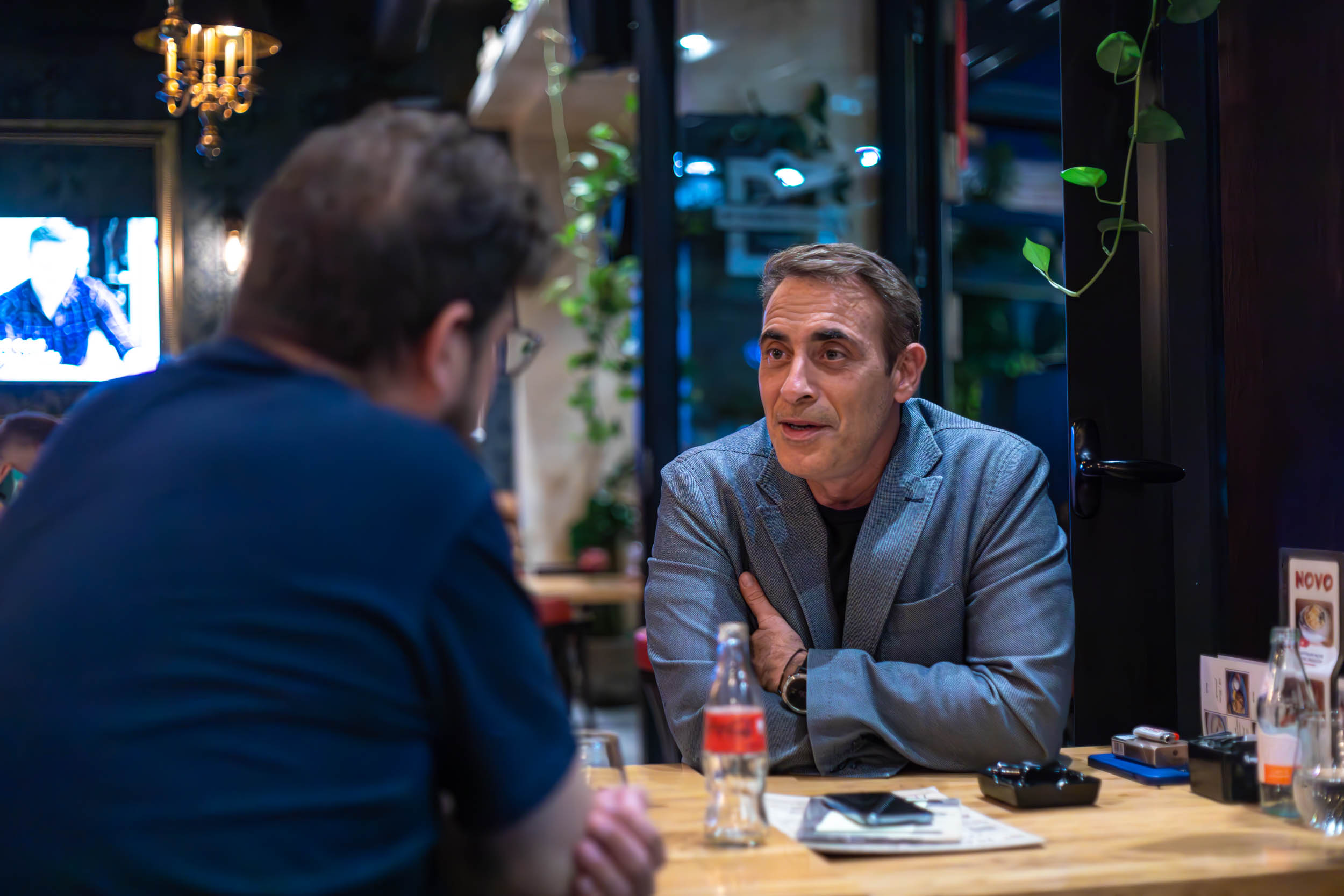
But you weren't mischievous.
As for mischief, it was entirely different from today's mischief. Namely, my older brother and I liked to take a little time off from classes, let's say we were skipping. However, we spent that time in the city library. On its shelves were books that I can always reread, bound copies of Politikin Zabavnik and Discovering the World in comics.
In general, one day our parents received the news that my brother and I had skipped school. Actually, we took a few of those Discovering the World comics, got on a trolleybus, circled around, and read. We picked that trolleybus because of the heating and padded seats. After a few rounds, we would get off at Kalemegdan, where there was a turnaround at that time.
In the end, we were caught somewhere near the school. My father caught us in the act, reading comics. The outcome? I sincerely hope no one from school will misinterpret this, but he took us to lunch at our favorite tavern "Proleće." All in all, maybe we missed a test, but we learned a lesson that still resonates clearly today.
So, you loved to read in your free time.
To say the least. When I was in seventh grade, due to hip problems, I ended up "stuck" in the hospital. I spent a good year and a half there. In other words, I finished school in the hospital. Initially, I was immobile, and later mobile thanks to crutches, and during that period, something interesting happened. While my generation continued in the same footsteps—playing football and showing off in front of the students of "Pero Popović Aga"—I was surrounded by books and had all the time in the world to read.
Many years, perhaps decades later, I realized that it was a blessing for me. Because during that time, I spent it with giants like Andrić and Dis, unconsciously elevating myself spiritually. When I returned among my peers, I stood out from them. Not excessively, but enough to be different from the others in the generation.
I mean, if we take what they say as an axiom—that you are the average of the three or four people you spend the most time with—why not surround yourself with the works of the doyens of Serbian literature who, unfortunately, are no longer with us, and thus improve yourself.
When did you show interest in the media world?
In my twenties. Actually, it was more a matter of intuition than interest. The first opportunity presented itself when Radio Novosti announced a competition. I went to the audition at the former Borba building on Trg Marksa i Engelsa, today's Trg Nikole Pašića, and got a chance to intern.
I remember being overwhelmed by incredible stage fright, even though I had half a sentence to read live. Also, I had a female colleague, but unfortunately, I don't know what happened to her in the end because after three or four months, I was told that I didn't have the potential for radio journalism, i.e., as a presenter, and that it was smarter to do something else in life.
So, my first internship in journalism ended in failure. Later, I discovered that the media can be much more ruthless, especially audio-visual ones like television, where the clean geometry of someone's face gives a significant advantage over someone who is more diligent, smarter, and talented.
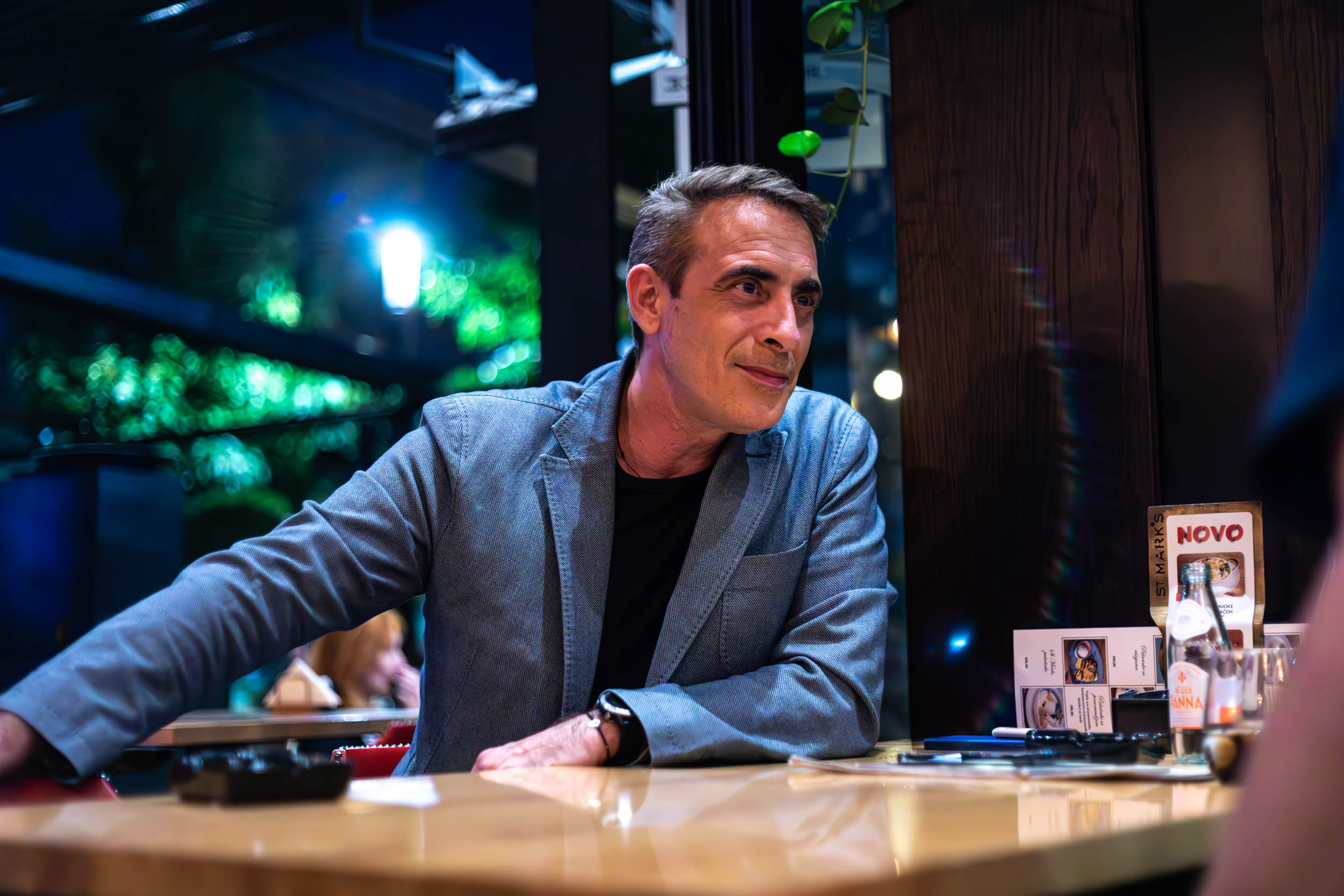
But you didn't give up on working in the media.
Not at all. Very soon, there was a competition for Politika Television. The audition was held at the Youth Center, and part of the committee consisted of my current good friends, Vanja Bulić and Zoran Baranac. Although I made it further, I didn't show up in the next round. Why? Because I didn't know when it was taking place.
Namely, I was out of the country when notifications were being sent, and as it was a time when grandmothers received calls on landlines and communication was dramatically more relaxed, I found out too late. I rushed to Politika the next day, but in vain.
This brings me to the next lesson, but also to a phase that will certainly pave my life's path, and that is that all defeats are useful. Because if I had succeeded in these two aforementioned places, I wouldn't have dared to audition on a large scale organized by BK Television and become a host.
That audition was not easy at all.
Absolutely. There was a river of people in front of the building, and I, no more and no less, felt extremely confident. Moreover, there was a certain feeling, where I felt a bit sorry for the people around me. Although I knew that all of them came full of dreams and hopes, I was convinced that I would be the one to go further. As I said, a strange feeling, like some kind of providence.
Anyway, I passed the first, second, and third rounds and ended up on BKTV.
At that time, BKTV introduced many innovations to the television world.
You are right. If you look closely, its former staff makes up the editorial boards of almost all today's television stations in our airwaves. The reason for that is very simple—they worked with young people. No one was thrown into the fire immediately, as is the case today, where they burn out right away. We had six-month training before we even uttered a single sentence on screen.
So, we worked with university professors, older colleagues who were journalists... I have never seen such serious training anywhere before or since. Many dropped out during it because it tests you in many ways. For example, if you are not ready to be at work every morning at 6 o'clock, you will give up after a few weeks. And then only the best of the best remain.
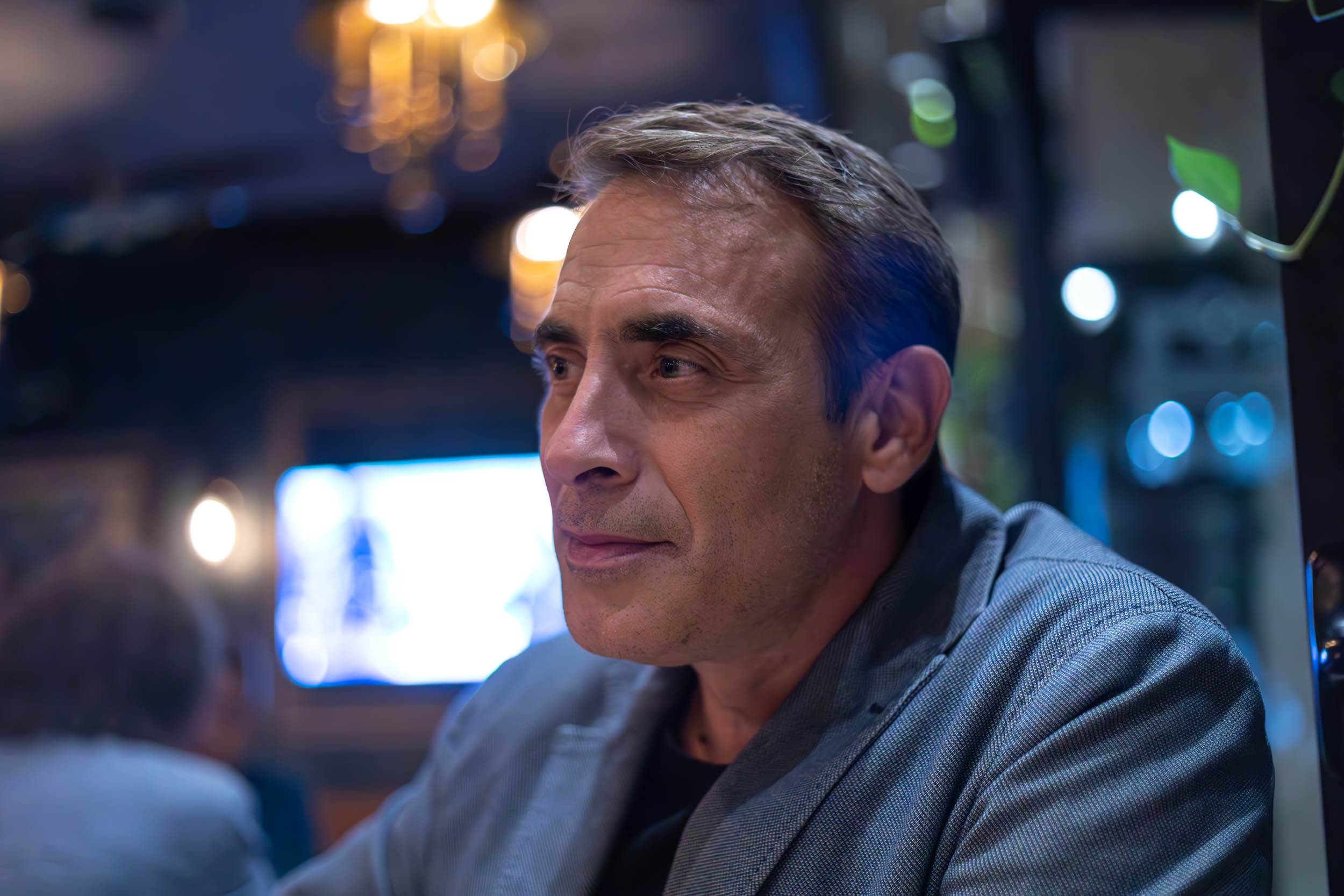
Are these training sessions responsible for your diction?
The initial credit for impeccable diction goes to my grandmother. She was a professor of Serbian, Latin, and some other "dead" languages and literally trained my brother and me to exhaustion.
She could not stand for her grandchildren to mispronounce something. She was so strict that she would unhesitatingly throw a book at us. That's the old-school professorial style. If you made a mistake, you found out in a very, very painful way. However, it's obvious that she did an excellent job because many highlight my diction as a comparative advantage.
During your career, you have found yourself in many positions.
True story. It was a strange path, completely incomprehensible to the generations of our parents and that time when it was normal to get a job and retire in the same company.
However, I was repeatedly hit by a feeling of unexplained dissatisfaction at a certain job, and initially, it was difficult to understand. Although I had a very desirable position, where I led the most-watched news, and was financially satisfied, deep down, I felt worse and worse. At the same time, it meant that it was time to part ways.
Many years later, I realized that it was about personal growth. When you don't part ways and constantly hit the ceiling, in my opinion, it's like a kind of small death. You know, if you don't step out of that comfort zone a bit, you will forever be what you are at this moment. And then the question arises, are you ready for that. I think no one is ready for that.
On which position did you find yourself most?
Mind you, I was in front of and behind the cameras as a host and scriptwriter, I was an editor at several television stations. Moreover, for a while, I was in charge of adapting foreign formats in Serbia as part of the Adrenalin production company. I remember working with my dear friend Marko Živić on his authorial show with great excitement. Along with Lane Gutović, he was a pioneer of that late-night format here.
However, despite working for many media companies and facing many media challenges, where I edited programs with a million-strong audience, I think my destiny is working on the news, which is a very specific role on and off the screen.
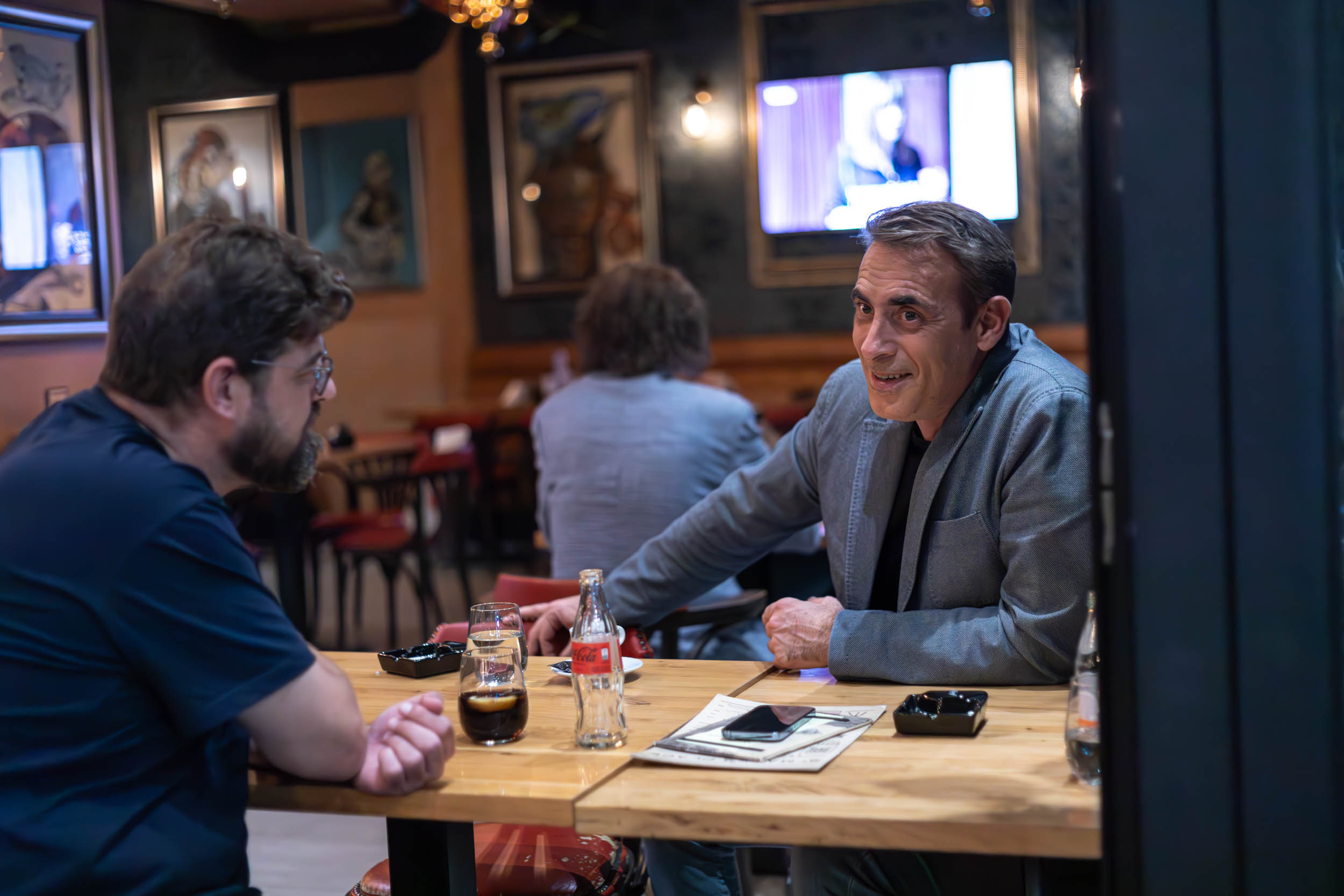
What makes the news exciting and interesting?
In the basic structure, the informative program serves to explain the world to people so that they can make decisions more easily based on that. And what is the comparative advantage of the news over other programs is that the news is life itself. In fact, the news is the truth—such a truth that even the presenter cannot be false.
On the other hand, technological development has separated presenters and hosts. Namely, when I started working, we all read the news from paper. This created a subliminal message for the viewer, where they would note that this or that television reports this and that. So, it was completely depersonalized.
At one point, the technological revolution made us all put those papers aside and say: "This is how today looks." At that moment, in those two hundred milliseconds, I have to be the truth, without premeditation, so that you would believe me.
Since then, presenters are not as interesting as real journalists and editors. We started looking each other in the eyes. More precisely, in the teleprompter, without the need to ever look away again. Thanks to that, it became clear to everyone whether the host is telling the truth or not.
So, we had to become the truth at that moment, and that is not something that can be learned. Because it consists of upbringing, talent, extroversion, philanthropy, etc. Now, I present it as if it were some kind of science, but that's how it is—how it is.
All of this made this job get into my blood. The whole events I covered enriched my life because this job puts you in a position to always watch history from the front rows. It's a much bigger adrenaline roller coaster than any other format, and that's exactly why I love the news.
When did you have the biggest stage fright?
Believe it or not, it wasn't in front of the cameras. By incredible circumstances, I participated in the New Year's opera at the National Theater. The famous opera singer, unfortunately now late, Živan Saramandić, prepared me for that performance. As a guest, I was supposed to sing Sinatra's song "My Way."
However, when I stepped onto the stage of the National Theater and looked out from there at the whole world that gathered, I think I had by far the biggest stage fright then. In the end, I gathered strength and sang the best I could. That musical experience was truly fascinating for me, and I am immensely grateful to the people who made it possible.
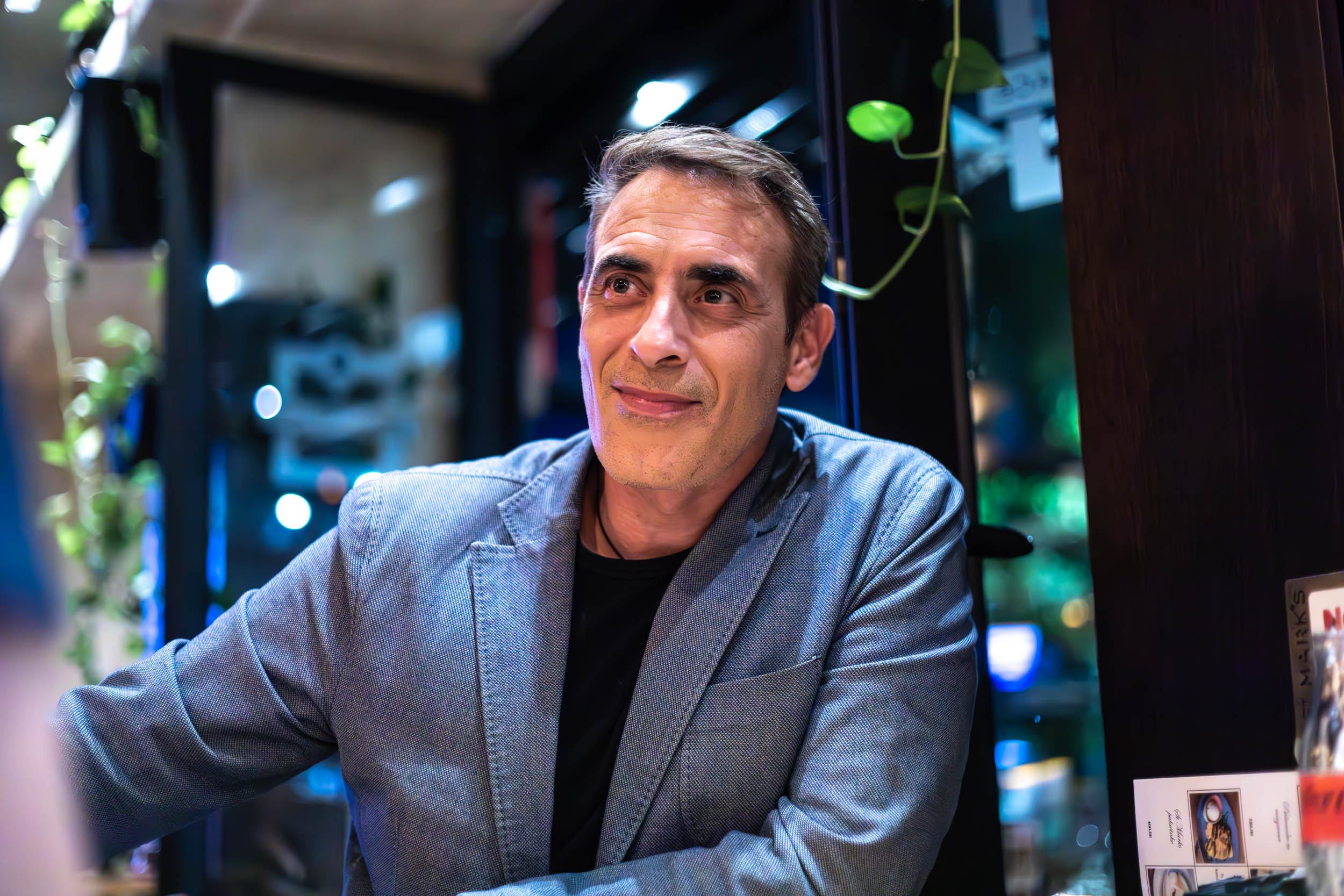
Is there any regret that you didn't fulfill yourself as a poet?
Not really. Yes, I had talent, but I was too introverted for that. Simply, it could never become a profession, i.e., today I understand that it could, but not back then.
What are your plans for the future?
Currently, I am the director of the news program at UNA Television, which is the fastest-growing media company in our country, and perhaps beyond. And when you are in the whirlwind of such a project, then you give your all, both creatively and energetically. Hence, all my hopes and plans are related to that.
However, there is also a broader vision, and that is to unite my two great loves: a television and a production company. In other words, to introduce television formats. One of my authorial works was "Flashback," or "What Comes After" on RTS. So, I would like in the future to combine these two things in one place.




 6 ℃
6 ℃

